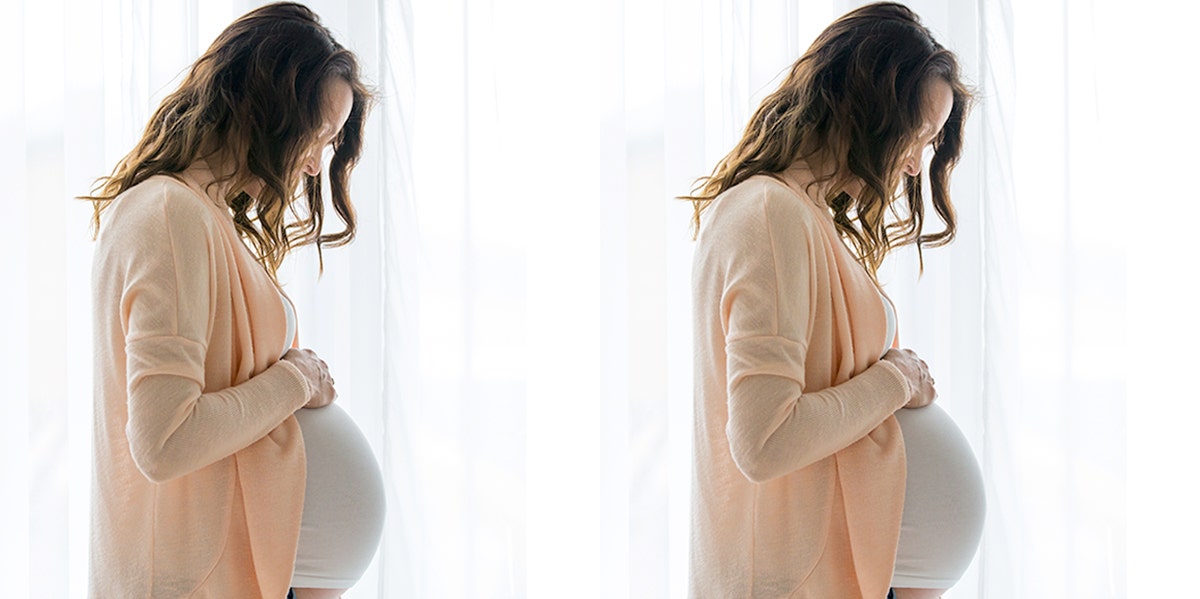A Woman With Two Vaginas Is Pregnant With A 'Miracle Baby'
Wow.
 Tomsickova Tatyana / Shutterstock
Tomsickova Tatyana / Shutterstock By Korin Miller
A Washington woman is pregnant with her “miracle baby” after doctors told her for years that she was infertile. Krista Schwab was born with two vaginas and two wombs—a rare condition known as uterus didelphys.
Krista, 32, tells The Sun that she was diagnosed with uterus didelphys at age 12, and learned that she has two vaginas at age 30.
“I always felt the separate sections during intercourse and smear tests but I just thought that feeling was a normal thing every woman had,” she says. Krista also says sex can be “extremely sensitive and can hurt.”
She’s suffered from two miscarriages as a result of her condition, and she and her husband Courtney had started to think about IVF when Krista realized she was expecting. Krista is now five months pregnant with a baby boy in her left womb.
Krista says doctors think she’ll have to have a C-section but she’s “dreaming of a natural water birth.”
Michael Cackovic, M.D., a maternal-fetal medicine physician at The Ohio State University Wexner Medical Center, says it’s difficult to know exactly how many women have Krista’s condition, but points out that uterine didelphys makes up only about 5 percent of all congenital uterine anomalies—and those make up 2 to 4 percent of fertile women with normal reproductive outcomes.
Basically, this is pretty rare.
Christine Greves, M.D., a board-certified ob-gyn at the Winnie Palmer Hospital for Women and Babies, says she’s seen it before, but it’s fairly easy for a woman to have two uteri and not realize it. “A lot of them go undiagnosed, especially if they’re not symptomatic,” she says.
RELATED: I Stopped Having Sex With My Husband And We're Closer Than Ever
Uterus didelphys is typically diagnosed when a woman has heavy periods and it’s picked up on an ultrasound, says Jessica Shepherd, M.D., an assistant professor of clinical obstetrics and gynecology and director of minimally invasive gynecology at the University of Illinois College of Medicine at Chicago. But again, some women have no symptoms and just don’t realize it.
There are no studies that say uterus didelphys can impact a woman’s ability to get pregnant, Greves says, but they can have an increased risk of miscarrying.
“There are really no good prospective studies to explain why, but sometimes the uterus may not be big enough to accommodate a normal pregnancy,” she says.
However, as Krista's case demonstrates, it still can be possible to get pregnant. Melissa Goist, M.D., an assistant professor of ob-gyn and physician at The Ohio State University Wexner Medical Center, says that in many congenital anomalies, the fallopian tube and ovary connection is still there.
“As long as sperm can travel to the egg (which is released into the tube) then conception will occur,” she says. “The challenge is then the location of implantation in the uterine cavity. If implantation occurs over an area of distortion or blood supply compromise, then a miscarriage may occur.”
Women with uterine abnormalities like uterus didelphys also have similar clinical pregnancy rates as those with normal uteri that undergo IVF, Cackovic says, so that’s definitely an option for women who find themselves in Krista’s situation.
Women with uterus didelphys do have an increased risk of having a preterm birth and bleeding complications, Shepherd says, and if a woman has a C-section, she points out that doctors will need to know ahead of time which uterus they’ll need to make the incision on. "You'd definitely need to see a high-risk doctor," she says.
Having two vaginas can also make a vaginal delivery difficult, Greves says, since a woman basically has a partition in her vagina. (Hence, the higher risk of a C-section.)
While Krista’s road to pregnancy wasn’t easy and she says she hopes she can inspire other women with her condition. “I want women with uterine didelphys to never let anyone tell them miracles can’t happen because they do,” she says.

